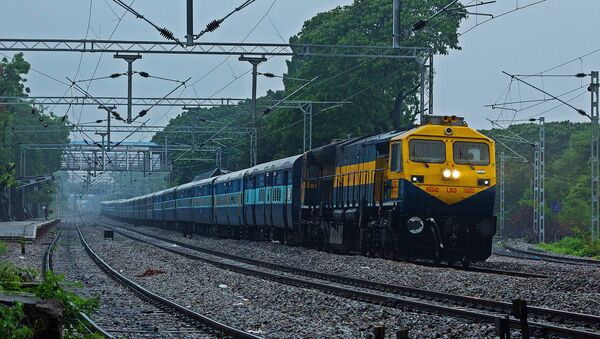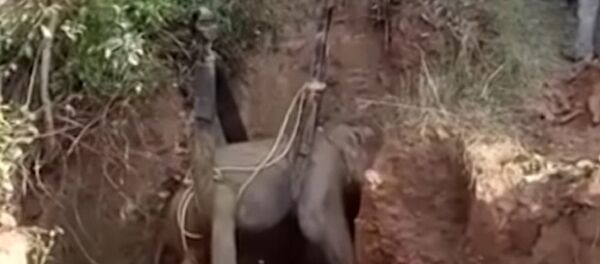New Delhi (Sputnik): Six endangered Asian elephants have been mowed down by a speeding train in India's northeastern state of Assam. The victims of Sunday night's accident included a pregnant elephant and its unborn baby. The baby reportedly ejected out of the mother's body when the speeding train hit them.
"The accident happened due to the speeding train. We have been coordinating with the railways for the past one year to identify certain vulnerable tracks where the movement of elephants is quite frequent. Our officials have been coordinating with the railway staff in these vulnerable areas, but this accident has happened where such movements were rarely reported in the past" Davinder Suman, District Forest Officer, West Sonitpur told Sputnik.
The North Frontier Railway has claimed that it has been issuing temporary speed restrictions and caution orders from time to time whenever there is intimation from the forest officials about the movement of elephants near railway tracks. Permanent speed restrictions are also imposed on notified elephant corridors. "This particular incident did not happen in a notified elephant corridor," a railway official insisted.

Earlier on the night of 5th December, a bigger accident was prevented between Jugijan and Hojai stations of Lumding Division due to prompt action by the railway and forest department saved a herd of 73 elephants from a collision with Dibrugarh — Amritsar Express.
Increasing man-animal conflict resulting in loss of natural habitats has caused the population of the endangered Asian elephants to steadily dwindle in the last few years.
Assam alone has lost about 40 elephants in past 100 days due to various reasons including the collision with trains, poisoning, electrocution etc. Last year alone 62 elephants died unnatural deaths. Most of them were hit by speeding trains.
"As the status of elephant corridors and forests are denuded, wild elephants are left with no choice but to look for other routes to go from one place to another in search of food. So, the earlier identified corridors have changed. Corridors under the current rate of habitat change may not be static. As such new paths used by wild elephants have to be monitored to save elephants from being hit by trains," Dr. Bibhab Talukdar, CEO, Aaranyak, leading wildlife NGO based in Guwahati told Sputnik.
The elephant is accorded the highest protection by India's Wildlife Protection Act (WPA), 1972. Moreover, the 'Asian elephants of Assam' have been declared 'endangered' by the International Union for Conservation of Nature (IUCN).




